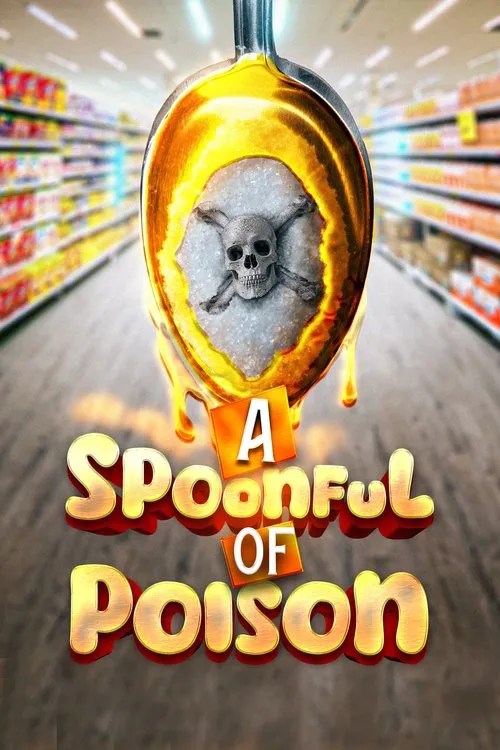Unmasking the Sweet and Oily Truth: The Vision Behind “A Spoonful of Poison”
In the landscape of modern cinema, documentaries serve as powerful mirrors, reflecting societal truths and igniting crucial conversations. J. Horton’s “A Spoonful of Poison” is one such film, an unflinching expose that delves into the pervasive and often insidious roles of sugar and oil in the American diet. More than just a presentation of data, it’s a meticulously crafted narrative designed to shock, inform, and ultimately, empower.
The Genesis of a Critical Inquiry
The inception of “A Spoonful of Poison” was rooted in a pressing observation: the spiraling health crisis in America. Director J. Horton recognized that two seemingly innocuous kitchen staples—sugar and oil—were at the very heart of this problem. The challenge, however, was to translate this widespread culprit into a cinematic experience that resonated with audiences. Horton and his team embarked on a journey that began with dissecting the vast American food system itself. From the bakery aisle to the restaurant plate, the omnipresence of these ingredients became the focal point, setting the stage for a deep dive into their historical context and economic entanglement. The film swiftly moves beyond mere observation, unearthing alarming statistics, such as the average American’s staggering consumption of 22-30 teaspoons of sugar daily—far exceeding health recommendations.

Weaving the Narrative: From Data to Personal Testimony
A cornerstone of documentary filmmaking is the delicate balance between fact and human experience. Horton’s skillful direction in “A Spoonful of Poison” shines through in this regard. To illuminate the severe consequences of sugar and oil consumption, the filmmaking team brought together a formidable roster of experts in nutrition, medicine, and agriculture. These interviews provided the scientific and historical backbone, explaining complex concepts like insulin resistance and metabolic disorders in an accessible manner.
Crucially, Horton understood that statistics, while powerful, often carry less weight than personal stories. This led to the inclusion of deeply moving testimonies from individuals directly impacted by these dietary choices. The narrative threads of a young woman battling type 2 diabetes and a father despairing over his child’s insulin-dependent condition provide a raw, empathetic counterpoint to the scientific data. These are not just case studies; they are faces of a public health crisis, making the abstract consequences of systemic dietary flaws painfully real for the viewer. This deliberate choice to personalize the narrative elevates the film from a mere informational piece to a profoundly humanistic exploration.
Unveiling the Hidden Hands: Industry, Influence, and Policy
Perhaps one of the most audacious undertakings in “A Spoonful of Poison” was its unflinching portrayal of the forces perpetuating our reliance on sugar and oil. The documentary painstakingly uncovers the “complex web of industrial practices and economic interests” that underpin the current food system. Horton’s research team meticulously traced the ties between the agricultural industry, corporations, and government agencies. This segment demanded meticulous fact-checking and careful presentation, as it ventures into the often-controversial realm of industry lobbying and regulatory capture. The film suggests a complex system of power and influence “prioritizing profit over public health,” a critique that is both damning and meticulously evidenced. This required not just journalistic integrity, but a directorial vision courageous enough to confront powerful vested interests.
A Recipe for Change: Crafting a Vision of Hope
Despite the grim realities it exposes, “A Spoonful of Poison” consciously concludes with a powerful message of hope and agency. Horton’s directorial choice to showcase individuals and communities actively breaking free from the sugar and oil dependency is not simply an addendum; it’s an intrinsic part of the film’s purpose. By highlighting dietary conscious choices, home cooking, and local activism, the documentary avoids leaving viewers mired in despair. Instead, it transforms them from passive recipients of information into potential agents of change. The emphasis on nutrition education, sustainable agriculture, and policy reform provides concrete pathways forward.
The film’s “straightforward and unobtrusive” direction, as well as its “engaging and accessible cinematography,” are key to its impact. J. Horton allows the weight of the stories and research to command attention, ensuring that complex scientific concepts are clearly communicated. “A Spoonful of Poison” is a testament to the power of documentary filmmaking—a compelling and balanced argument for re-examining our relationship with food, inspiring viewers to demand and actively participate in creating a healthier, more just food system for generations to come. It’s an urgent call to action, delivered with both the sting of truth and the promise of a better future.